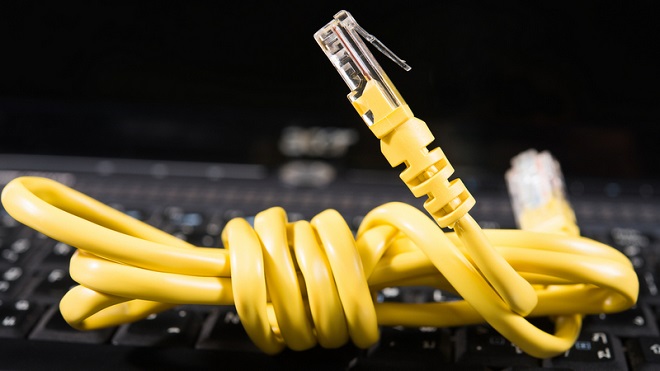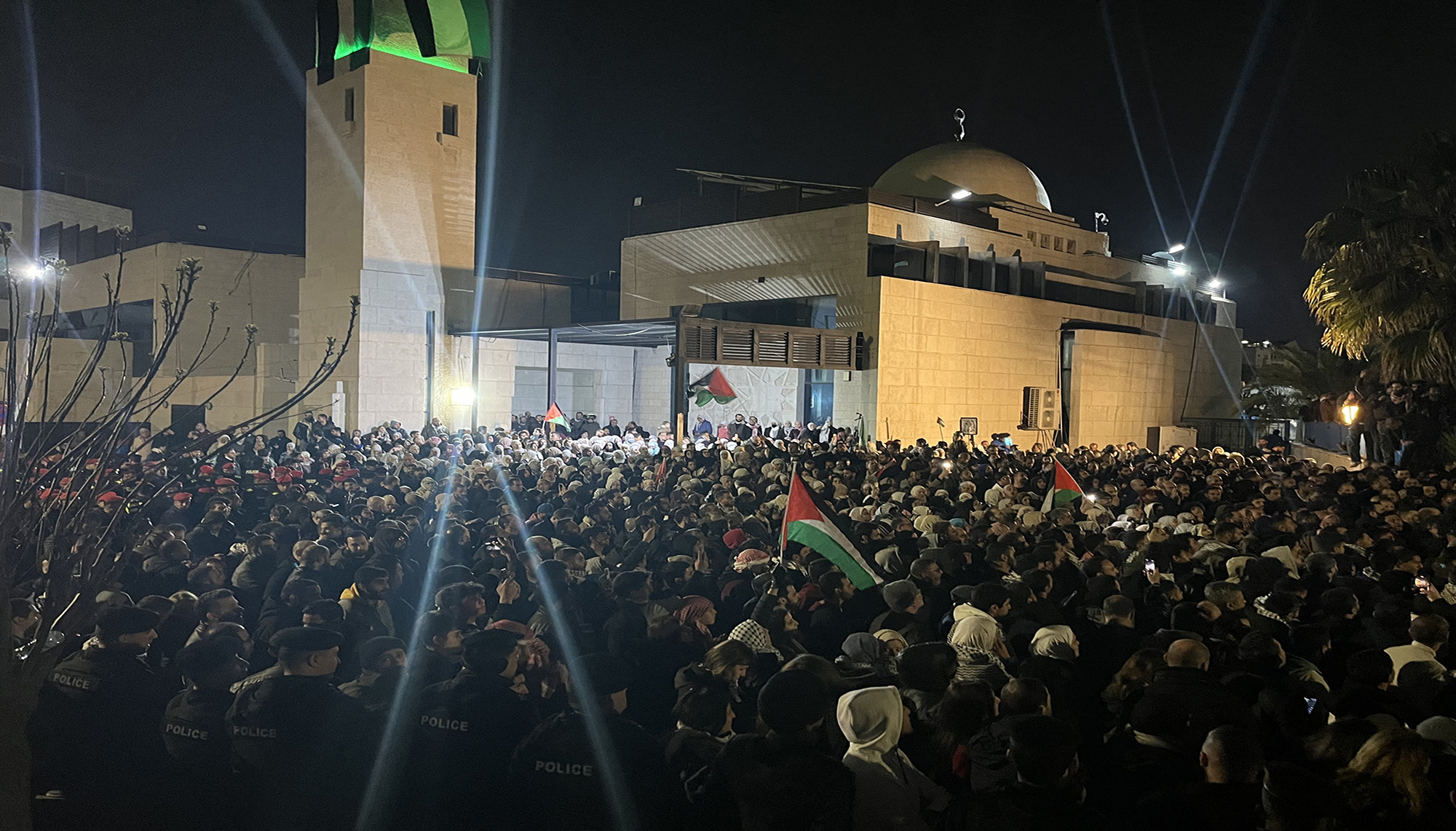Image by Shutterstock
By: Reem Almasri
In autocratic counties such as Jordan with no system built to ensure accountability, models of control over internet access may range from legislative measures enforced by the government to informal techniques exercised by the private sector.
Formal censorship techniques are exercised through a legislated framework for law enforcement to block websites, and fine journalists, bloggers, editors-in-chief, and owners of online content. The design of the legal framework relieves Jordan from local and international pressure given that it is only applying the rule of law put forward by an elected parliament. In this blog I will talk about the informal techniques the country have used, and still use, to control access to information in cooperation with the private sector, especially internet service providers.
Internet Service Providers
ISPs in Jordan have practiced control over internet access through different techniques. Not necessarily backed by a legal framework, this informal control over content manifests itself through cases ranging from executing the government’s censorship requests, to de facto censorship of “controversial” websites, as well as the ability to suspend internet service to customers for “violating” use conditions.
The design of the legal framework relieves Jordan from local and international pressure given that it is only applying the rule of law put forward by an elected parliament
Executing Government Censorship Requests
Although not backed by a legal framework, private and public ISPs execute all censorship requests they receive from the government. Prior to 2013, official requests to ISPs to censor content were almost nonexistent. There was only one case in 2001 when the government asked ISPs to block access to the US-based newspaper, The Arab Times. The newspaper devoted a good share of its content to controversial and inflammatory articles on Jordan’s monarchy and government.
In June 2013, ISPs blocked access to 300 Jordanian websites responding to a request by the Telecommunication Regulatory Commission (TRC), ordered by the director of Press and Publication Department (DPP) when the grace period given for electronic websites to rectify their legal status ended.
The process through which these websites were blocked occurred through the following actors: the Department of Press and Publication (DPP), the Telecommunication Regulatory Commission (TRC), and ISPs. The press and publication law grants the director of the DPP the authority to order blocking unlicensed “electronic publications” of his selection according to his understanding of what constitutes an “electronic publication”. Although the execution process of this order is not legally detailed in the law, the order descended from the DPP to the TRC, and was finally executed by ISPs upon request.
One might say that ISPs are only executing the legally binding orders by the TRC. It is true that the License Agreement between the TRC and the ISPs states that “the licensee should collaborate at all times with the TRC or their authorized representatives in practicing the assigned functions of the TRC listed in the telecommunication law” (article 29). However, the TRC functions listed in the law do not reference the execution of orders to block online content by ISPs (article 6). It is worth noting that this function was included in the proposed amendments of the telecommunication law that preceded the passage of the new PPL, but it is still in its draft status.
De Facto Censorship
Not only did ISPs respond to unconstitutional governmental requests for censorship, but they also performed their own de facto censorship. Before the execution of the new Press and Publication law the main dominant ISP in Jordan, Orange Telecom, blocked several web pages, including a forum for “Arab Atheists”, and a satirical blog criticizing the Jordanian regime under a “provocative” name. While the exact time when the forum was blocked cannot be retrieved, the latter was blocked in January 2011 with the rise of the Arab Spring. The company practiced a de facto exercise of authority silently. Unlike the case of blocking the Arab Times website in early 2000, Orange’s decision to block these two pages was not based on a legal framework or backed by an official governmental request. If anything, these cases reflect the jurisdiction that private companies have to enforce public policy and control access to certain kinds of content.
ISPs’ Jurisdiction over Internet Access
Although the telecommunication law prohibits ISPs from suspending or canceling services to their customers, there are exceptions. According to the telecommunication law, an ISP has the power to suspend or stop the service “if the usage of the service violated the running legislation or public morals”. These suspensions do not require a court order; they leave the identification of violations to the ISPs’ own interpretations. An ISP’s translation of this article comes through in the terms of conditions printed on the back of any internet service contract.
Across all terms of conditions, criteria for “acceptable usage” start at the official line of the widely defined conditions as stated in the telecommunication law. For example, most ISPs state their authority to completely stop a customer’s service for security and public safety needs, or in the case a customer attempts to use the network for “fraud” or to harm “public morals”. Some ISPs extend the blanket of violations that may lead to service suspension without court order to:
“sending, receiving, uploading or/and downloading or/and using or/and reusing material which is abusive, indecent, obscene, menacing, or in breach of any copyright, confidence, privacy, or any other rights; and sending any unsolicited or promotional material.” (Umniah’s Terms of Conditions)
These conditions follow the trend in telecommunication law of using loosely defined terms like “public morals”. The lack of an official precise definition of violations leaves ISPs to determine what constitutes a violation without a legal, transparent framework.
The lack of government resources to execute acts of censorship made it resort to the power of the private sector as an execution arm. This, in most cases, is not legally organized within a formal legal framework, which makes the private sector’s role in censorship more dangerous in the absence of systems of accountability.
Internet Governance Moving to the Hands of the Private Sector
The lack of government resources to execute acts of censorship made it resort to the power of the private sector as an execution arm. This, in most cases, is not legally organized within a formal legal framework, which makes the private sector’s role in censorship more dangerous in the absence of systems of accountability.
Just like the Silicon Valley companies in the PRISM scandal have proved to be the private arm of the National Security Association, ISPs in Jordan are heading in that direction by responding to government requests and expanding their authority on service suspension. Official laws, policies, and treaties that governmental institutions develop to control internet access are at the center of the internet regulation debate. However, the informal authority that ISPs have under governmental mandate allows them to get away with decisions affecting online expression and access to content.
When it comes to the fight for an internet availability that respects civil rights in Jordan, and worldwide, bigger efforts should move in the direction of holding the private sector accountable for breaching its’ clients’ expectations of a neutral provision of a paid service.







